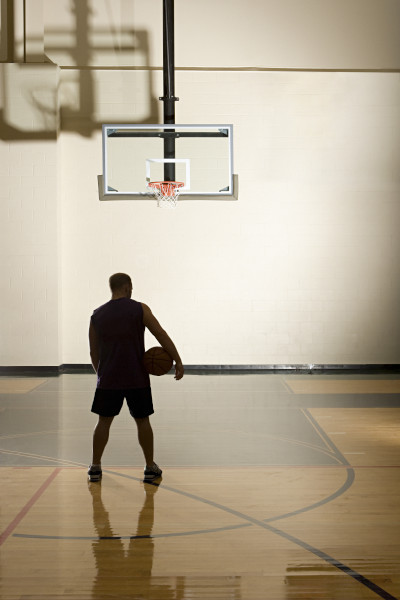
While the experience of being a college student brings with it a newfound sense of independence and freedom, it also means new responsibilities. Choosing the right classes, juggling a heavy academic workload, keeping up grades, engaging with professors, making new friends, and managing finances—all of these can be especially stressful and demanding for a young person navigating campus life. For student-athletes, the stress can be even greater.
Student-athletes contend with a unique set of pressures.
In addition to the everyday challenges faced by all students, collegiate athletes must deal with the pressures unique to playing a competitive varsity sport. Unlike their peers who do not play competitive sports, collegiate athletes are subject to additional demands that include practices, scheduled competitions, traveling to and from games, meeting with coaches, and strict adherence to a structured physical fitness regimen to stay in shape. Most importantly, student-athletes must maintain their grades. Failing to meet NCAA or university academic performance standards could jeopardize a student-athlete's eligibility to play intercollegiate sports and could put them at risk of losing a sports scholarship.
For student-athletes, the identities of being both a student and an athlete can lead to conflicting priorities.
The student-athlete carries two identities, one of being a student and the other of being an athlete. Sometimes the ‘push and pull’ of these two identities, with each one having its own distinct set of priorities, can clash, thereby exposing the student-athlete to even further stress and pressure. To cope, some student-athletes turn to binge drinking. The U.S. Centers for Disease Control and Prevention defines binge drinking as consuming five or more drinks in one sitting for men or four or more drinks in one sitting for women. Unfortunately, while student-athletes may believe that binge drinking can temporarily relieve some of the stress and pressure they feel, it can have a profoundly negative impact on their health as well as adversely affect their physical performance by causing slow reaction times, dehydration leading to muscle soreness and cramping, changes in blood pressure, and other harmful effects on the body. Moreover, binge drinking can have serious academic consequences that may include missing classes, poor performance on exams, falling behind in class assignments, and slipping grades—all of which can be a determining factor on whether a student-athlete retains eligibility for intercollegiate athletics.
Study shows an association between athletic identity and alcohol consumption in student-athletes.
A recent study examined the relationship between alcohol consumption, academic success, and athletic identity in some student-athletes. Study participants completed a survey in which they responded to questions about their drinking habits, grade point averages (GPAs), the importance of academics, and the influence of their peer groups. The study results showed that slightly more than 30% of the student-athletes who were surveyed regularly engaged in binge drinking at a frequency of once per month or more. The findings suggested that the alcohol consumption of student athletes involved in team sports such as football, basketball, swimming and diving, etc. had higher rates of alcohol consumption than those who played in individual sports such as track and field, or cross country. These variations could be attributed to differences in sport subcultures, expectations set by coaches, the severity of disciplinary measures established by individual sport programs, or other factors.
The study findings also demonstrated a positive correlation between athletic identity and alcohol consumption. Specifically, the more the student-athlete identified with being a full-time athlete instead of a full-time student, the more likely they were to consume alcohol. Along the same lines, the less that the student-athlete identified as being a student, the less likely they were to focus on academics.
Counseling and mental health resources need to be made available to student-athletes.
The existing literature on alcohol consumption in student-athletes highlights how important it is for universities and athletic departments to make counseling and other mental health supports available to collegiate athletes who may be developing drinking habits of concern. Some observers also cite the need for college administrators and faculty to address any unconscious bias they may have that causes them to question the academic capabilities of student-athletes. Discrimination of this sort can create a campus climate where the student-athlete feels they are valued less in the eyes of their professors compared with non-athlete students. This could damage a student-athlete's motivation to focus on their studies and lead to poor academic outcomes, thus further exacerbating the pressures and anxieties experienced by these students.
Experts believe that first and foremost, a student-athlete should be viewed primarily as a student, not as an athlete, and that universities should implement policies and practices conducive to this mindset throughout the campus.
To learn more about binge drinking in student-athletes, read this article by Hung-Ling (Stella) Liu, associate professor in the Recreation Management program within the School of Sport, Recreation, and Tourism Management (SRTM) at George Mason University. To learn more about degree offerings in Recreation Management, please visit the program website.
